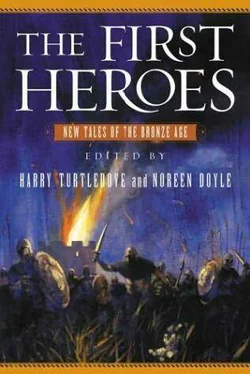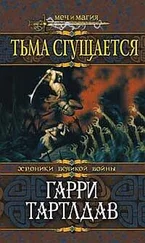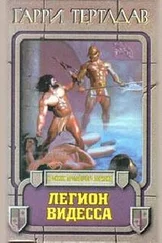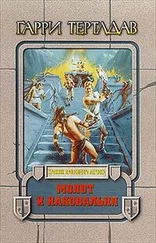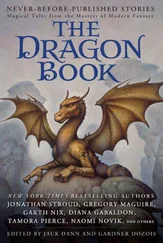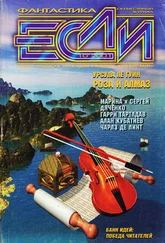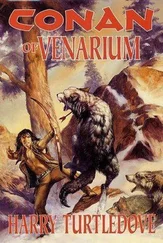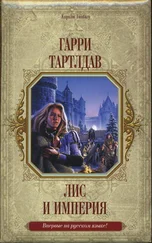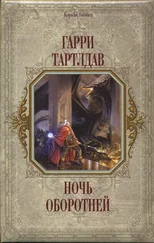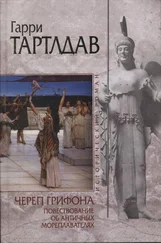Гарри Тертлдав - The First Heroes
Здесь есть возможность читать онлайн «Гарри Тертлдав - The First Heroes» весь текст электронной книги совершенно бесплатно (целиком полную версию без сокращений). В некоторых случаях можно слушать аудио, скачать через торрент в формате fb2 и присутствует краткое содержание. Жанр: Фантастика и фэнтези, на английском языке. Описание произведения, (предисловие) а так же отзывы посетителей доступны на портале библиотеки ЛибКат.
- Название:The First Heroes
- Автор:
- Жанр:
- Год:неизвестен
- ISBN:нет данных
- Рейтинг книги:3 / 5. Голосов: 1
-
Избранное:Добавить в избранное
- Отзывы:
-
Ваша оценка:
- 60
- 1
- 2
- 3
- 4
- 5
The First Heroes: краткое содержание, описание и аннотация
Предлагаем к чтению аннотацию, описание, краткое содержание или предисловие (зависит от того, что написал сам автор книги «The First Heroes»). Если вы не нашли необходимую информацию о книге — напишите в комментариях, мы постараемся отыскать её.
The First Heroes — читать онлайн бесплатно полную книгу (весь текст) целиком
Ниже представлен текст книги, разбитый по страницам. Система сохранения места последней прочитанной страницы, позволяет с удобством читать онлайн бесплатно книгу «The First Heroes», без необходимости каждый раз заново искать на чём Вы остановились. Поставьте закладку, и сможете в любой момент перейти на страницу, на которой закончили чтение.
Интервал:
Закладка:
"Wouldn't enemies loot the palace and the treasury first?" Master Chu raised his voice. "Sirs, who do you seek? This is the house of Chu the bronzeworker."
"Well met then, Master Chu. I bring you news from your Lord Yang."
"Me?" Trustfully my master unbarred the gate, while I peered out to see the soldiers' crests. These were not men of ours!
"Behold the orders of the victorious Lord Yang." The soldier swaggered in jingling and held out an enameled bamboo scroll-case. "He has lent you and your services to his triumphant ally, my lord the Marquis of Hubei. The fame of your war bells has inspired the Marquis with a profound desire for his own set."
"Gods!" My master goggled.
"Did you see them in battle?" I interjected. "Did the enemy fall down at the sound?"
At this the troops in the gateway yelled with laughter. "The enemy fell down all right, but it was at the sight of us!"
"Oh, ho ho! We rattled our spears, and they wet their pants!"
For a moment I was speechless. Of course they would believe they were responsible. Everyone in the army probably did. Of all the tiles in the mosaic, which is the most essential? The only answer is all of them. "But then it was all by chance!" I cried. "We had nothing to do with the victory!"
"My Assistant is overwrought with relief," Master Chu said calmly. "Your news of victory relieves my mind tremendously, sirs." The soldier chortled until his face was red. "My lord the Marquis is merely anxious to reproduce all the elements of this famous victory, when he marches against Zheng."
"Zheng!" I was aghast. Lord Zheng was the master military tactician of the western provinces, and we were going to fight him with bells? And there was another thing: "Does the lord Yang's wife enjoy good health, do you know?"
"She was delivered of a son last month." The soldier winked at me. "Word is you two had something to do with that, as well."
My master scratched his head thoughtfully. "I would be delighted to comply with the Marquis' behest. And by the greatest of good fortune my Assistant here has readied our tools and gear for travel."
"Good!" The soldier nodded to his men. "Fetch your baggage—we depart immediately!"
We hurried inside to gather up our bags. "The Marquis will not be satisfied to be outdone by Lord Yang," my master said happily. "We must make him a hundred bells, perhaps a hundred and twenty!"
"We don't know what we did or how we did it," I almost wailed. "But we're supposed to do it again, better?"
My master rolled the heavy leather forge aprons and gauntlets and crammed them into a sack. "What can we do, lad, but what we do best? The work is good, the bells as well made as can be. Mortals can ask for no more. When our best doesn't suffice, we shall die."
I sat down heavily on a box of metal scraps. The prisoner's fate could have been our own: brutal mutilation and slow death. Instead we had fame and possibly fortune. We had done nothing to either avert it or earn it. All our efforts were unavailing. "Is there anyone truly in control, then?" "The gods, perhaps. No one less. Let it go, boy. The entire scroll of fate is too broad for our eyes. We view the world through a bamboo stem, a narrow circle of the picture, but it's all we can take in."
It came to me that the magic of the bells was not in the metal nor in their music nor in our crafting of them. The magic was in the hope they raised in the human heart. With it impossibilities became not certain but possible. My master's fathomless hope and ferocious concentration were the best wisdoms in this meaningless world. Wheat, he could bow to the wind; a phoenix, he could ride the storm. Five years I had been his Assistant, and I had not known that. "You are indeed my Master," I said humbly. "I have much to learn."
Master Chu smiled. "Now come, Li. Gather up those extra shovels. These soldiers can be useful—let us have them carry what we cannot. Surely the Marquis will build us a workshop!"
Chariotry became the hallmark of Bronze Age warfare, a status symbol from Egypt to northern Europe and far to the east. Some scholars argue that eventually new military tactics spelled the end not only of chariot-based warfare but of the Bronze Age itself. In the beginning, however, chariots promised protection from marauding tribes and commanded a great price. Judith Tarr demonstrates just how valuable by returning to the speculative Bronze Age of her Epona Sequence.
The God of Chariots
Judith Tarr
Enmerkar the king stood on the walls of Uruk. The hordes from Ithe desert had withdrawn at last. In their wake they had left devastation: fields and orchards stripped of their harvest, villages burned, cattle slaughtered or stolen, and an echo of laughter as they marched away with their spoils.
He had hoped—gods, he had prayed—that if he raised the city's walls higher and doubled the guards on the fields, the Martu would give way. But they had only grown bolder, the more the city tried to resist them. Those who understood their language said that the raiders reckoned the city folk soft and their king a coward, too weak to put up a proper fight.
The men of Uruk were brave enough, but these savages were relentless. Their blades of flint and their spears of fire-hardened wood killed as thoroughly as the finest bronze. And there were so many of them. Uruk was a great city and powerful, but it could not send out the hordes of fighting men that these tribes bred like swarms of locusts.
Now they had gone away. A good half of the harvest was taken and much of the rest trampled and fouled. It was too much to hope that the Martu would not come back when the grain was tall again, as they had for year upon year, and each year in greater numbers and with stronger weapons and more outrageous contempt. The men of Uruk grew the grain; the men of the desert took it, as if the gods had given it to them as a gift.
Enmerkar stood under the open sky before the eyes of his people. He could not rend his beard in frustration, still less fling down his royal staff and trample it. He stiffened his back and squared his shoulders and made himself descend from the sight of a war that he could not, with all his wealth and power, hope to win.
"We need Aratta," the king's sister said.
She was Inanna, the living goddess, unlike Enmerkar, who was a mere king of men. In her divinity she could run far ahead of mortal understanding; she was not always patient, either. She glared at the blank faces of the king's council, a circle of round cheeks and round eyes, with no more wit in them than in a cairn of stones.
"Aratta," she said as if to children, "has wood. It has stone. It has metal. It has alliances with us from years before, oaths and promises of trade. Aratta will help us, if we offer a caravan of grain and the fruits of the south."
"A caravan?" said the king. "It will be a lean winter as it is. We can't spare even a tithe of the harvest—and Aratta will want more than that, if it knows how desperate we are."
"Then let us not be desperate," Inanna said sharply. "Let us be allies with trade to offer. Or are we truly defeated as the Martu declare? Are we their sheep, to be plucked of our fleece in season and led tamely to the slaughter?"
That made some of them bristle and others close their ears and minds against her. Lugalbanda, who had earned his place here by winning a battle or three but who was not the best or most eloquent of speakers, found himself unable to restrain his tongue. "I—I have heard," he said, battling the stammer that always beset him when he had to speak in front of people, "I have heard a story, a rumor really, but it has a ring of truth—that there is a new god in Aratta, a god of war."
"That's old news," said the councilor who had spoken first. "The god, if he is one at all, has been there for years." "Indeed," said the king's sister. She turned her beautiful and terrible eyes on Lugalbanda. "Tell us what you have heard."
Читать дальшеИнтервал:
Закладка:
Похожие книги на «The First Heroes»
Представляем Вашему вниманию похожие книги на «The First Heroes» списком для выбора. Мы отобрали схожую по названию и смыслу литературу в надежде предоставить читателям больше вариантов отыскать новые, интересные, ещё непрочитанные произведения.
Обсуждение, отзывы о книге «The First Heroes» и просто собственные мнения читателей. Оставьте ваши комментарии, напишите, что Вы думаете о произведении, его смысле или главных героях. Укажите что конкретно понравилось, а что нет, и почему Вы так считаете.
